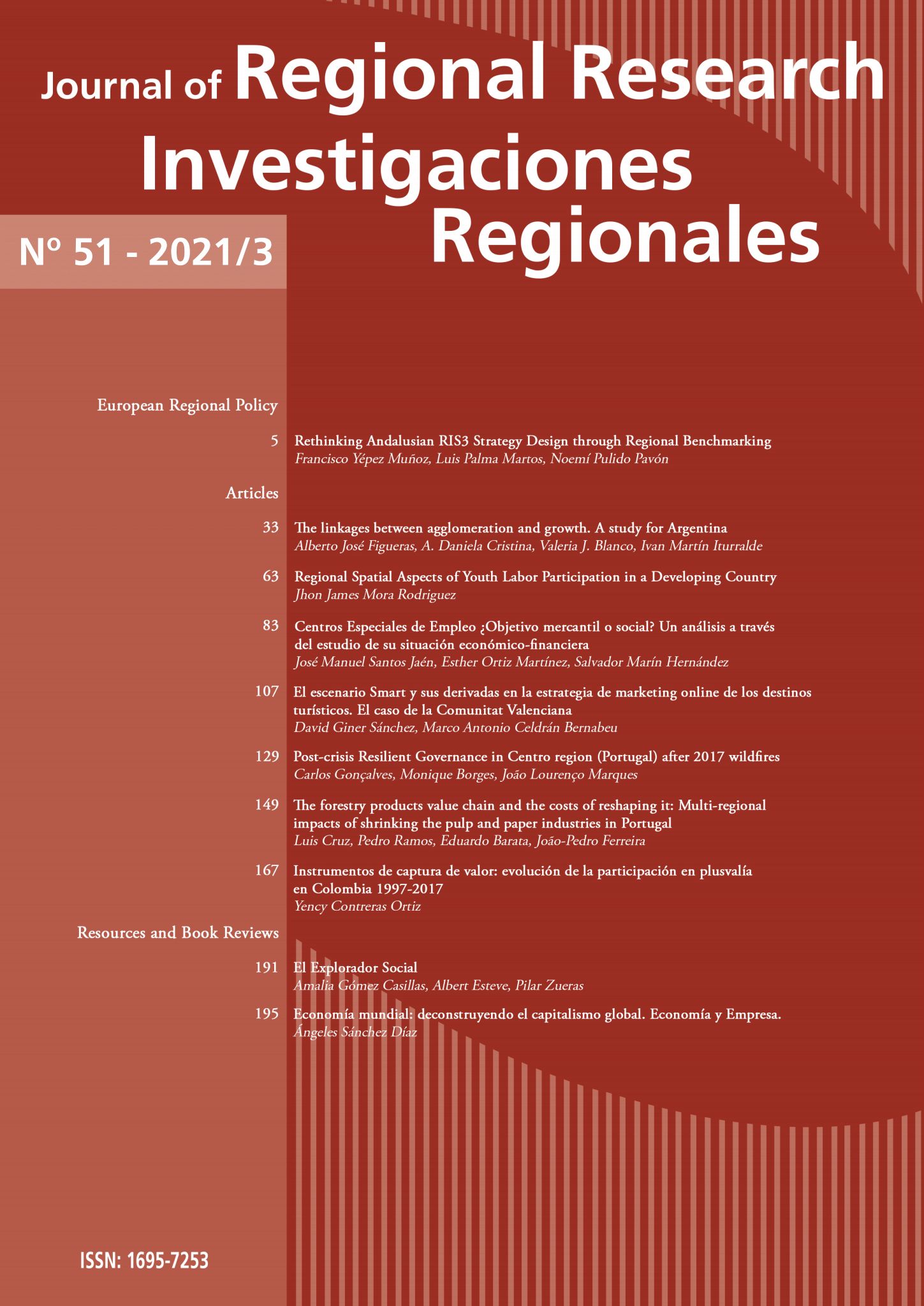Gobernanza resiliente posterior a la crisis en la región Centro (Portugal) después de los incendios forestales de 2017
DOI:
https://doi.org/10.38191/iirr-jorr.21.022Palabras clave:
Resiliencia post desastre, sistemas de gobernanza, servicios de interés general, resistencia, adaptabilidad, incendio florestal fuego fatuoResumen
Los sistemas de gobernanza, al abordar la acción posterior al desastre, juegan un papel importante para minimizar la vulnerabilidad de la comunidad en futuros eventos disruptivos. La literatura describe cómo las acciones posteriores al desastre hacia medidas de resistencia y resiliencia a menudo se implementan, cambiando a enfoques de resiliencia adaptativa como una segunda preocupación, y sin tener en cuenta las estrategias transformadoras de resiliencia. Dos incendios forestales consecutivos en la Región Centro (Portugal), en 2017, cortaron el acceso a los Servicios de Interés General (SGI) y desequilibraron la estructura e identidad territorial socioeconómica (el impacto principal fue de 116 víctimas mortales). En este documento, se analiza la cobertura mediática del fenómeno durante los 12 meses posteriores al desastre utilizando una muestra de 150 artículos publicados en dos periódicos. Los discursos públicos son indicativos de la importancia general dada al impacto y a las respuestas basadas en medidas de resistencia y resistencia. Además, se discuten los desafíos teóricos y prácticos para el diseño de políticas y la organización de los sistemas de gobernanza en contextos posteriores a desastres.
Descargas
Publicado
Número
Sección
Licencia
Aquellos autores/as que tengan publicaciones con esta revista, aceptan los términos siguientes:
En el momento de aceptar la publicación de sus artículos en Investigaciones Regionales / Journal of Regional Research, los autores acceden a utilizar la licencia Creative Commons CC BY-NC. IIRR/JRR es una revista abierta que permite a los autores retener el máximo control sobre su trabajo. Los autores aceptarán utilizar la licencia Creative Commons Attribution-NonCommercial. Esta licencia permite a cualquier persona copiar y distribuir el artículo con propósitos no comerciales, siempre y cuando se atribuya adecuadamente la atribución del trabajo a la revista y a los autores.


